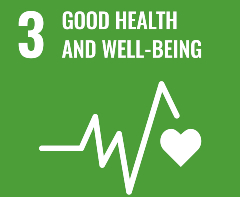
How can lessons from Ebola help inform the response to COVID-19?
The University’s Humanitarian and Conflict Response Institute (HCRI) is working with leaders in technology and data from the humanitarian and development sectors to share key lessons learnt from the Ebola outbreak to help inform the response to COVID-19.
The rapidly evolving COVID-19 pandemic is unlike any previous disease outbreak. However, research from the 2014–16 West Africa Ebola outbreak may hold key lessons for decision-makers.
The challenge
The spread of the COVID-19 pandemic has caught the world unprepared, resulting in daily increases in confirmed cases and deaths globally. The data picture, however, is often unclear. How many people are really dying from COVID-19? What is the difference between probable and confirmed COVID-19 cases? Why do these numbers change?
To better understand the data, governments, aid agencies and healthcare actors can draw on lessons on the use of technology and data from past outbreaks such as the 2014–16 Ebola outbreak to inform decisions.
The HCRI is a leading global centre for the study of humanitarianism, global health and disaster management that collaborates with other researchers, policy makers, and key humanitarian actors. Dr Larissa Fast, HCRI’s Director of Research, is working with leaders in the humanitarian and development sector to ensure lessons from the past aren’t lost.
Lessons learnt from the West Africa Ebola outbreak
Between 2014 and 2016, Dr Fast worked as a AAAS Science and Technology Policy Fellow at the United States Agency for International Development (USAID).
She led research into the use of data and technology in the response efforts, which was eventually published as the USAID report Fighting Ebola with information: Lessons from the use of data, information, and digital technologies in the West Africa Ebola outbreak response. The report aimed to answer key questions about the ‘fog of information’ that made it so difficult to determine actual numbers of Ebola cases, and document how data and technology were effectively used to support the response efforts.
The research revealed insights about the confusing data picture, rooted in factors such as:
- weak infrastructure (gaps in reliable electricity, broadband or mobile connectivity that prevented easy sharing of case data or to support the deployment of digital tools);
- lack of machine-readable data (data were published in PDFs rather than spreadsheets); and
- missing unique identifiers for patients resulting in some patients being counted more than once.
In many cases during the Ebola outbreak, digital tools to collect data didn’t use the same definitions or standards, or the technologies were incompatible. This made it difficult to compare or merge data about the outbreak.
Digital technologies were most effective when supported with significant investments in human resources and institutional policies and procedures. Where effective, they built on existing tools and processes rather than creating entirely new ones. They also enabled national authorities to more easily share vital information with local health workers.
Putting learning into practice
Today, as in the Ebola response, humanitarian and development organisations have received many offers of innovations or new technologies that could be adapted for use in the COVID-19 response.
To ensure that these offers do not repeat the mistakes of the past, a group of experts including Dr Fast are working with technology leaders to disseminate the lessons of the Ebola outbreak response.
This work includes Dr Fast’s former colleagues at USAID, who are using the report’s findings as part of their preparations of the agency’s COVID-19 response. An externally focused summary of lessons from the Ebola response has also been created and shared.
In addition, Dr Fast was invited to speak in a global webinar How can the technology sector response to COVID-19?, bringing together technology leaders with humanitarian and development professionals. You can watch the webinar below or read the write-up on the Technology Salon website. Some of the key messages included:
- tech is important, but not as important as people and processes;
- a crisis is not the time to introduce massive change, because people are already trying to cope with uncertainty and change;
- tech needs to be embedded in the local context — organisational, cultural and national. One size fits all solutions are unlikely to work;
- think incremental, as opposed to ‘game changing’;
- think about the ethics of your work: We shouldn’t be experimenting with new tools and tech on populations who are already vulnerable.
Next steps
Too often in responding to humanitarian crises we reinvent the wheel and don't make use of the lessons of the past. By sharing knowledge from past experience, in this case from the Ebola outbreak response, at this early stage of the global humanitarian response, we can mitigate previous mistakes.
To this end, technology leaders and humanitarian organisations have now set up forums to discuss key elements of any response involving data and technology, including data ethics and privacy and responses for refugees and low income settings.
This not only has the potential to benefit the immediate medical and humanitarian response to COVID-19, but also longer-term societal recovery in low-income settings.
Meet the researcher
Dr Larissa Fast, Senior Lecturer in Humanitarian Studies
Find out more
Watch a recording of the How can the technology sector respond to COVID-19?
Read the accompanying write-up on the Technology Salon website.
Read an article co-written by Dr Fast and Dr Sophie Roborgh about how healthcare workers are still coming under attack during the coronavirus pandemic.
Read Professor Diana Mitlin’s blog: Dealing with Covid-19 in the towns and cities of the global south.

